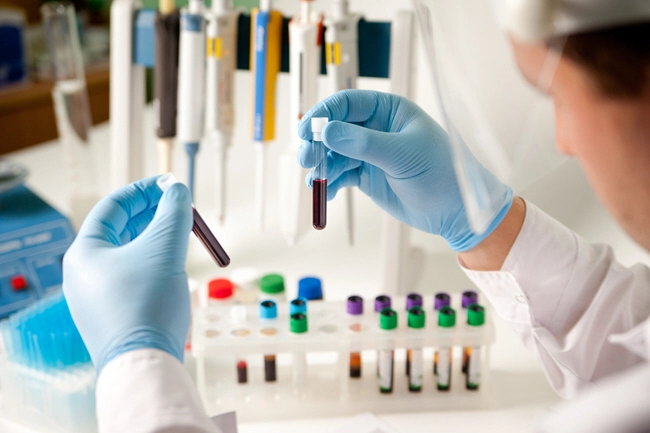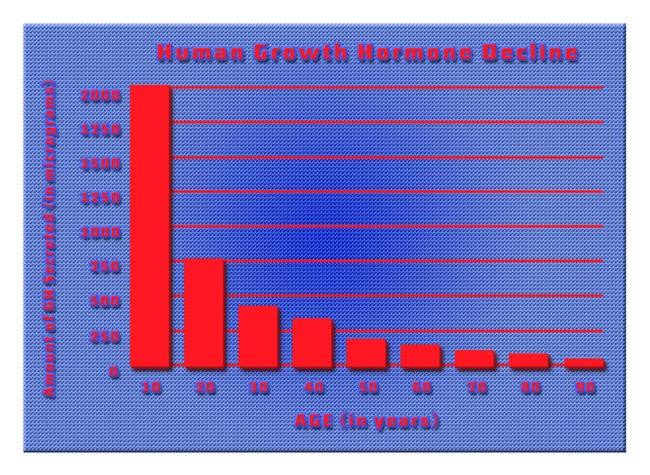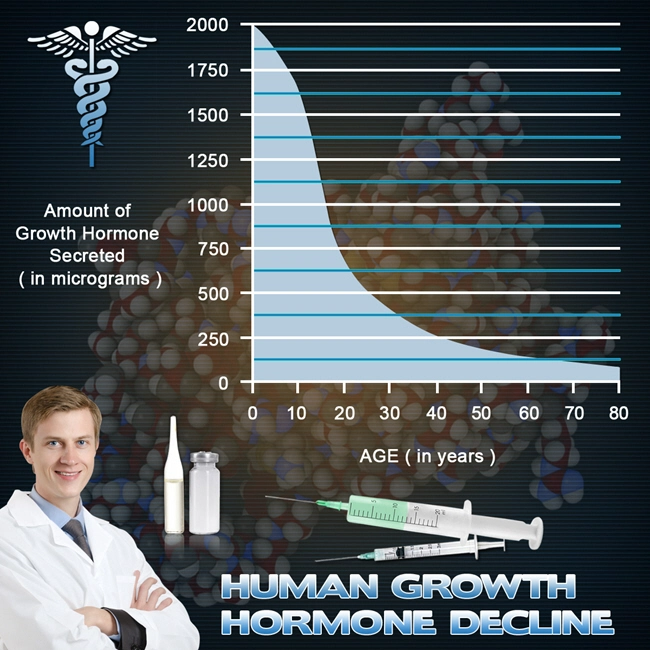
Video Link: https://vimeo.com/288015190
Video Download: Click Here To Download Video
Video Stream: Click Here To Stream Video
Video Link: https://vimeo.com/288015910
Video Download: Click Here To Download Video
Video Stream: Click Here To Stream Video
Video Link: https://vimeo.com/288016618
Video Download: Click Here To Download Video
Video Stream: Click Here To Stream Video
Very few supplements in both worlds of sports and nootropics (smart pills) have been studied and researched as extensively as creatine. It first appeared on the radar screen in the early 1990s and has proven itself ever since.
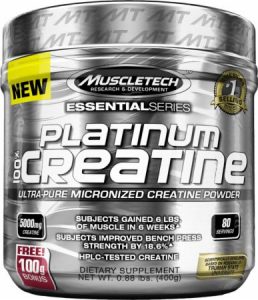 Countless research studies have shown that creatine is not only one of the best natural compounds ever introduced to the bodybuilding community, but it has also stood the test of time that very few other supplements have.
Countless research studies have shown that creatine is not only one of the best natural compounds ever introduced to the bodybuilding community, but it has also stood the test of time that very few other supplements have.
Many other products have come and gone, but creatine has shown it has staying power, getting better and better, and continuing to provide real-world results. Here are some of the powerful, useful benefits creatine delivers:
Effects of Creatine On Growth Hormone (GH)
A comparative cross-sectional study suggests creatine can raise growth hormone levels to be equal to that of intense exercise. Growth hormone (GH) is known to play an essential role in the regulation of body fat levels, immunity, muscle mass, wound healing, bone mass, and thousands of other functions both known and yet unknown.
It has been proven that GH levels steadily decline as we age and is widely responsible for the steady loss of muscle mass, dry, scaly, inelastic skin, weakened immune system, increased joint aches and pains, loss of libido, and erectile dysfunction (ED) and many other physical changes that make up the parade of horrors taking place in the aging human body.
Therefore, the possible effects of creatine on GH are worth exploring in aging populations.
One study found creatine could mimic the increased GH levels seen after intense exercise. In this comparative cross-sectional study, researchers gave six healthy male subjects 20 grams of creatine in a single dose at resting (non-exercising) conditions.
The study found that all subjects showed a "significant" increase of GH in the blood during the six-hour period after creatine ingestion. However, the study also found "a significant inter-individual variability in the GH response." That is, there was a wide variety of responses among individuals in the levels of GH achieved after taking creatine.
found "a significant inter-individual variability in the GH response." That is, there was a wide variety of responses among individuals in the levels of GH achieved after taking creatine.
For the majority of subjects, the maximum GH concentration occurred between two and six hours after ingesting creatine. The researchers concluded that "In resting conditions and at high dosages creatine enhances GH secretion, mimicking the response of strong exercise which also stimulates GH secretion."
These researchers felt that the effects of creatine on GH could be seen as one of creatine's anabolic properties with the lean mass and strength increases observed after creatine supplementation.
Although creatine supplementation has been found to increase lean muscle mass and strength in many studies, the effects of creatine on those tissues via GH enhancement have yet to be determined definitively.
Does Creatine Induce the Release of Growth Hormone?
Since creatine increases our exercise capacity, and exercise increases hormone release, it is expected that creatine should also indirectly increase the amounts of anabolic hormones produced while working out.
Indeed, one recent study has possibly demonstrated this predicted effect. Surprisingly, however, in this study Growth Hormone release was observed in non-exercising subjects after ingesting creatine. In other words, just taking creatine was sufficient to increase Growth Hormone production.
The Study: Six males were given a breakfast of 20 grams of creatine monohydrate dissolved in a half-liter of hot water. They were then told to relax and stay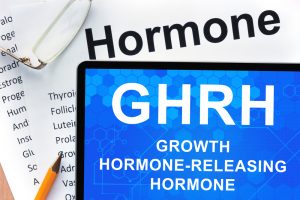 inactive for the rest of the morning.
inactive for the rest of the morning.
For six hours their blood was monitored at intervals for the presence of creatine and Growth Hormone. As expected, serum creatine levels rose within minutes of taking creatine monohydrate.
Blood Growth Hormone levels, on the other hand, required about 2 hours before arising. This lag indicates that the release of Growth Hormone depends on other cellular events occurring first.
Growth Hormone increased, on average, 80% over baseline values. However, this finding needs to be confirmed by corroboration with other studies.
What are the implications of this study?
This study suggests that creatine may have an anabolic property independent of its ability to increase exercise intensity.
This result may also explain why some studies have shown that muscle cells raised in “tissue culture” (outside of the animal in plastic dishes) increase their production of muscle proteins when exposed to creatine.
As were the subjects in the previously mentioned study, these muscle cells were inactive due to their growing conditions.
Another unexplained observation is why creatine appears to be less effective in the elderly. This situation may be partially explained by the decline in Growth Hormone levels in the aged. In other words, part of the benefit of creatine might be absent in elderly persons with less Growth Hormone.
Time will tell if these assumptions are right. In the meantime, patience is the word.
Unanswered Questions from the Study
1. Are other anabolic hormones similarly influenced by creatine? In this study, it was not determined whether other anabolic hormones, such as testosterone or insulin, similarly increase with creatine use.
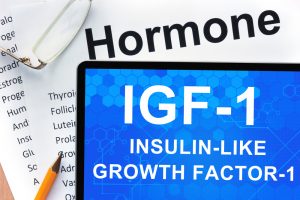 2. What about the Insulin-Like Growth Factor? Many of the effects of Growth Hormone are stimulated by Insulin-Like Growth Factor 1 (IGF-1), which the liver produces when stimulated by Growth Hormone. Interestingly, IGF-1 has also been shown to enhance creatine uptake into isolated muscle cells. Could this work in a feed-forward manner? In other words, does IGF-1-induced creatine uptake, further improve Growth Hormone release? Researchers are still unsure, and studies are ongoing.
2. What about the Insulin-Like Growth Factor? Many of the effects of Growth Hormone are stimulated by Insulin-Like Growth Factor 1 (IGF-1), which the liver produces when stimulated by Growth Hormone. Interestingly, IGF-1 has also been shown to enhance creatine uptake into isolated muscle cells. Could this work in a feed-forward manner? In other words, does IGF-1-induced creatine uptake, further improve Growth Hormone release? Researchers are still unsure, and studies are ongoing.
3. What is the cellular signal that triggers Growth Hormone release? Growth Hormone levels increase a few hours after creatine is taken. The biologically active form of creatine is phosphocreatine, which is creatine attached to a phosphate group. Could phosphocreatine be the signal that triggers the release of creatine from the Anterior Pituitary in our brains? Perhaps.
What You Need To Remember
Creatine enhances exercise performance in most young and healthy individuals. Since exercise induces the release of anabolic hormones, creatine supplementation should theoretically indirectly increase the release of Testosterone, Insulin, and Growth Hormone during exercise.
This study suggests that creatine alone (with no exercise) may trigger the release of Growth Hormone by the body. This finding is intriguing and might explain the previously unexplained increase in protein synthesis in isolated muscle cells not undergoing activity.
Furthermore, if Growth Hormone amplifies part of the effect of creatine supplementation, then this study might also explain why creatine supplementation is often less efficacious in the elderly, which have reduced Growth Hormone levels.
So, this study suggests that creatine supplementation may have anabolic properties independent of its effect on energy metabolism. Future scientific investigation will tell if this finding is valid.
Creatine and the Brain
Like the muscle, the brain uses creatine phosphate as a resource for the rapid regeneration of Adenosine triphosphate (ATP), the body's energy currency. Therefore, low levels of creatine in the brain can have a harmful effect on the brain's ability to function at optimum levels.
Creatine is an effective nootropic for the same reasons that creatine is so effective at giving your muscles and strength a boost...
- It raises ATP synthesis (energy formation) in the brain
- It improves short-term memory and reasoning skills
- It ramps up oxygen flow to the brain, which reduces mental fatigue
This is Your Brain on Creatine
Most of us hear the word ''creatine'' and immediately think of muscle gains. Although that's true, creatine also plays a significant role in brain function.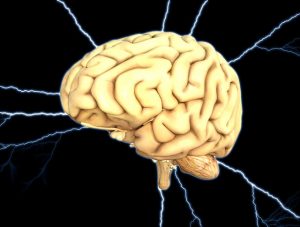
As mentioned earlier, creatine is one of the most widely studied and used supplements in the world, and is often touted for its ability to enhance athletic performance.
Many take creatine hoping it will help build muscle. But here's a little-known fact: creatine has a strong influence on brain function as well. Better brain energy means faster processing and better overall brain performance.
Creatine and Cell Energy
In the body, energy is stored and transferred by reactions that make and break phosphate bonds. For example, adenosine diphosphate (ADP) has two phosphate groups bound to it.
It is relatively stable and holds little energy.
Like ADP, creatine can also form an energy-charged bond with a phosphate group, forming phosphocreatine (Pcr). Pcr can donate its phosphate group to ADP to form adenosine triphosphate, which is the transporter of chemical energy between cells for metabolism.
As a result, creatine plays a significant role in tissues that have high, fluctuating energy demands, such as muscle and the brain.
Creatine is the main reason your cells can produce and use energy efficiently. That's why creatine supplementation is at the top of many athletes' supplement lists.
Creatine Levels and Brain Function
Cells with higher energy requirements, like neurons, are highly dependent on the creatine/phosphocreatine system's role in energy transport. The system has also adapted to meet the energy needs of different brain cell types.
That's why the creatine/phosphocreatine system is found throughout the brain.
Recent study findings agree that the creatine/phosphocreatine system is necessary for an adult brain to function at high levels. Moreover, they found that relative levels of creatine and phosphocreatine in the brain are considered reliable indicators of mental performance.
In other words, the more creatine in your brain, the better your mind works.
Research has shown that even five days of creatine can significantly reduce mental fatigue and increase oxygen utilization in the brain. The results are crystal-clear: Creatine has powerful effects on enhancing and maintaining cognitive function.
Size Matters
Can creatine supplementation increase the amount of creatine in your brain? To find out, the American Journal of Physiology published a study on creatine levels in the human brain after oral supplementation.
 Volunteers in the study consumed 5 grams of creatine monohydrate four times a day for four weeks. Results showed that oral creatine supplementation caused a statistically significant increase in the concentration of creatine across brain regions.
Volunteers in the study consumed 5 grams of creatine monohydrate four times a day for four weeks. Results showed that oral creatine supplementation caused a statistically significant increase in the concentration of creatine across brain regions.
Levels of creatine in the brain were shown to increase as oral supplementation increased. After only a single dose of oral creatine, the average level found in the volunteers showed a substantial increase in gray matter, white matter, and the thalamus.
The effects became even more pronounced after 3-4 weeks of supplementation.
Researchers also found that these changes in brain creatine levels are completely reversible. The volunteers were measured again after three months without supplementation. The creatine levels in their brains had returned to their original levels.
Some subjects showed more benefits from oral supplementation than others.
The two most massive volunteers with the most significant body weight showed the smallest increases in brain creatine concentrations, indicating that proper dosage is likely related to individual size.
Creatine Can Protect Against Traumatic Brain Injury
If there's one new area creatine earns its reputation, it's in protecting the brain from damage. Recent experimental findings have demonstrated that creatine provides robust protection against traumatic brain injuries.
While the majority of the studies in this area have been conducted in animal models, the initial results are exciting.
 Early studies conducted in animal models have shown that chronic administration of creatine eased the extent of brain damage following trauma to their heads by as much as 36 per cent in mice and 50 per cent in rats.
Early studies conducted in animal models have shown that chronic administration of creatine eased the extent of brain damage following trauma to their heads by as much as 36 per cent in mice and 50 per cent in rats.
Additionally, levels of reactive oxygen species, which are responsible for increased oxidative stress in the brain, were significantly lower.
In a follow-up study, researchers found that the animals who were given supplemental creatine for two weeks before a head injury had lower levels of lactate and free fatty acids, suggesting greater protection following a traumatic brain injury.
These results support the idea that a creatine-enriched diet can provide substantial brain protection in part by suppressing secondary brain injury, the condition responsible for brain swelling, inflammation, and death.
Additionally, creatine can even be used as a recovery treatment for a post-head injury.
Researchers from the University Hospital of Heraklio (Greece) supplemented children and adolescents with creatine following traumatic brain injury and discovered that it sped up recovery time and communication, and decreased dizziness, fatigue, and the number of headaches. All of this without any adverse side effects from the creatine doses.
Choosing Your Creatine Source
It's hard to get the beneficial levels of creatine needed by nutrition alone, but the food is, as always, the first place to start. The best dietary source of creatine is wild game. Other sources include lean red meat and certain fish, particularly herring, salmon, and tuna.
Individuals who don't get much of these creatine sources in their diet (vegans, vegetarians, people that restrict red meat, or any person restricting portions and total calories) are much more likely to have lower total creatine levels.
These people showed the most dramatic benefit from oral creatine supplementation. And that goes for everyone else as well. Eat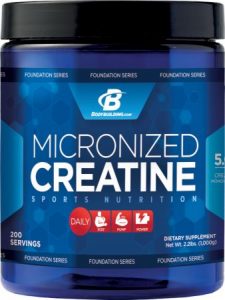 correctly, and add creatine in supplemental form.
correctly, and add creatine in supplemental form.
Remember, just because you're a meat-eater, don't think you do not need to supplement. Although vegetarians and vegans will see the greatest improvements in working memory and processing speed, six weeks of creatine supplementation in meat-eaters have been shown to increase creatine levels in the brain by nine percent.
What does this translate into? More brainpower!
More Reasons You Should Take Creatine
With the popularity of creatine skyrocketing, many folks are concerned about possible side effects. Here is a list of side effects that rarely occur:
- nausea
- stomach discomfort
- muscle cramps
- weight gain
However, here's the good news. If you suffer any of these effects, just lower the dose or stop taking creatine altogether and resume later at smaller doses.
Another thing to consider: many studies refute those side effects listed above, and conclude that creatine does not cause gastrointestinal distress, muscle cramping, liver or kidney damage, dehydration, or weight gain.
Creatine is, for the vast majority of users, completely safe. But if you do feel any adverse effects, just remember to lower the dose, as mentioned above.
Creatine has a long tradition of being a favorite supplement for weightlifters and bodybuilders.
However, many athletes in other sports are hesitant to take creatine due to concerns of becoming too big.
But they're wrong. And by being wrong, they're missing out on the vast array of benefits creatine delivers. Let's take a look at a few of them.
Studies on creatine have determined that it does much more than help you build muscle and strength. Creatine can also have beneficial effects on bone mineral density, reduce oxidative stress, and even boost memory. This safe, powerful supplement has something for everyone.
Creatine Boosts Aerobic Performance
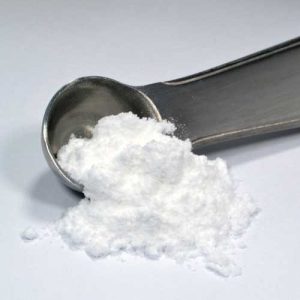 Countless studies have uncovered creatine's ability to stimulate strength, power, burn fat, and invigorate stamina, but despite what many people think, you don't have to be a professional bodybuilder to obtain the benefits of this amazing supplement.
Countless studies have uncovered creatine's ability to stimulate strength, power, burn fat, and invigorate stamina, but despite what many people think, you don't have to be a professional bodybuilder to obtain the benefits of this amazing supplement.
Creatine can also be useful for endurance athletes.
Most endurance athletes load up with carbs to boost glycogen stores prior to a race, but adding creatine into the diet can further augment glycogen stores.
Due to the link between high glycogen stores and endurance during protracted exercise, creatine could be quite worthwhile in endurance activities.
As an added bonus, creatine has been proven to dial down inflammation and cell damage after intense, lengthy exercise.
Research published in Life Sciences concluded that athletes who used creatine five days before a 30-kilometer race had substantially reduced levels of inflammation and muscle soreness after the contest.
Also, the rumors of creatine causing cramping and dehydration were proven false since no runners in the study experienced either one of those conditions.
If all of the above weren't enough, consider this: during the race, creatine was able to stabilize both body temperature and hydration status when running in hot and humid temperatures.
Creatine can also maintain bone density, encourage glucose metabolism, and reduce oxidative stress
Creatine Research Continues
Currently, studies are underway to determine if creatine can be helpful in combatting neurological diseases. So far, numerous studies have uncovered a therapeutic role that creatine may play in 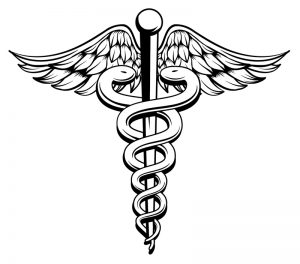 age-related neurological disorders like Parkinson's, Huntington's, amyotrophic lateral sclerosis (ALS), and Alzheimer's disease.
age-related neurological disorders like Parkinson's, Huntington's, amyotrophic lateral sclerosis (ALS), and Alzheimer's disease.
Evidence indicates that the supplement might be able to halt the loss of motor neurons and ease oxidative stress while reversing the lowered cognitive performance in individuals suffering from these diseases.
Creatine's benefits continue to swell, similar to the muscles of the bodybuilders who are using the supplement. So the question isn't why should you take creatine, but why wouldn't you?
Growth Hormone and Creatine: The Winning Combination!
Nothing can replace the phenomenal, mind-blowing benefits of a Human Growth Hormone (HGH) treatment regimen. HGH can pump new life into tired bones and bodies. And think of what a difference adding creatine can do when combined with growth hormone!
Contact us for a FREE, no-obligation discussion about the benefits of growth hormone replacement therapy.
References
The Definitive Guide to Creatine
https://www.muscleandperformance.com/supplements-performance/the-definitive-guide-to-creatine-6623
Another Reason to Take Creatine
https://www.muscleandperformance.com/supplements-performance/reason-creatine-11658
Creatine 101: What It Is and What It Does
https://steelfitusa.com/2018/08/creatine-101/
An Overview of Creatine Supplements
https://www.webmd.com/men/creatine#1
Contact Us Today For A Free Consultation
Dear Patient,
Once you have completing the above contact form, for security purposes and confirmation, please confirm your information by calling us.
Please call now: 1-800-380-5339.
Welcoming You To Our Clinic, Professor Tom Henderson.

- No Gym since COVID-19? No Problem! [Last Updated On: September 8th, 2025] [Originally Added On: January 12th, 2021]
- Video - Growth Hormone Builds Muscle and Burns Fat! [Last Updated On: March 5th, 2025] [Originally Added On: October 12th, 2021]
- Growth Hormone and Fitness [Last Updated On: February 15th, 2025] [Originally Added On: October 12th, 2021]
- Growth Hormone boosts Metabolism! [Last Updated On: February 13th, 2025] [Originally Added On: October 12th, 2021]
- Testosterone and Muscle Building [Last Updated On: February 13th, 2025] [Originally Added On: October 12th, 2021]
- Testosterone and Running [Last Updated On: February 14th, 2025] [Originally Added On: October 27th, 2021]
- Testosterone and Exercise [Last Updated On: February 15th, 2025] [Originally Added On: October 27th, 2021]
- HGH and Physical Fitness [Last Updated On: February 12th, 2025] [Originally Added On: October 28th, 2021]
- Boost HGH with Squats! [Last Updated On: February 15th, 2025] [Originally Added On: October 28th, 2021]
- Blood Flow Restriction Training [Last Updated On: October 9th, 2025] [Originally Added On: December 1st, 2021]
- The Skinny on How Hormones Affect Your Weight [Last Updated On: June 8th, 2025] [Originally Added On: February 19th, 2023]
- Unlocking the Power of Your Potential: A Sleek and Healthy Approach to Human Growth Hormone and Fitness [Last Updated On: February 15th, 2025] [Originally Added On: February 15th, 2025]
- Unwrapping the Powers of Creatine - A Brain and Brawn Booster! [Last Updated On: February 15th, 2025] [Originally Added On: February 15th, 2025]
